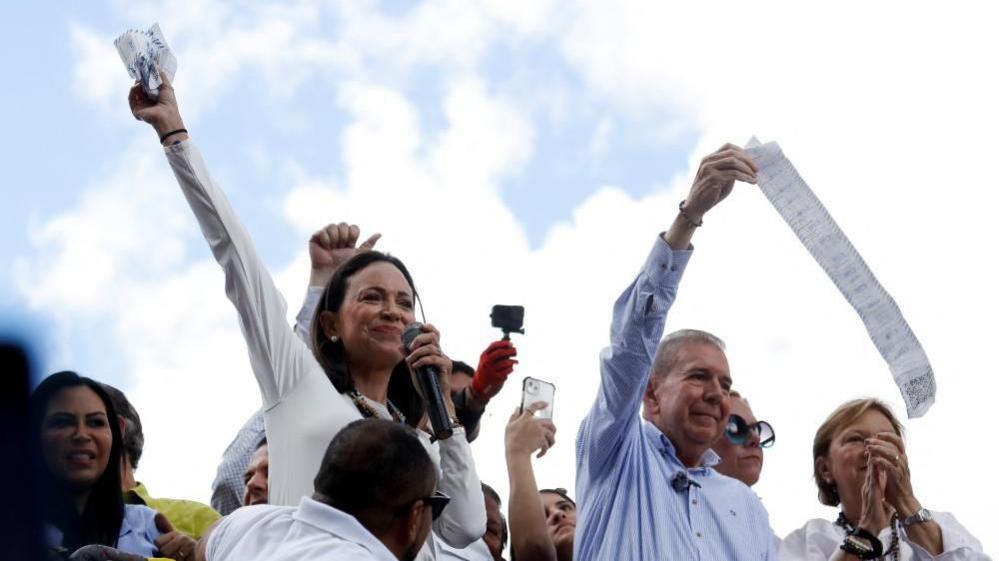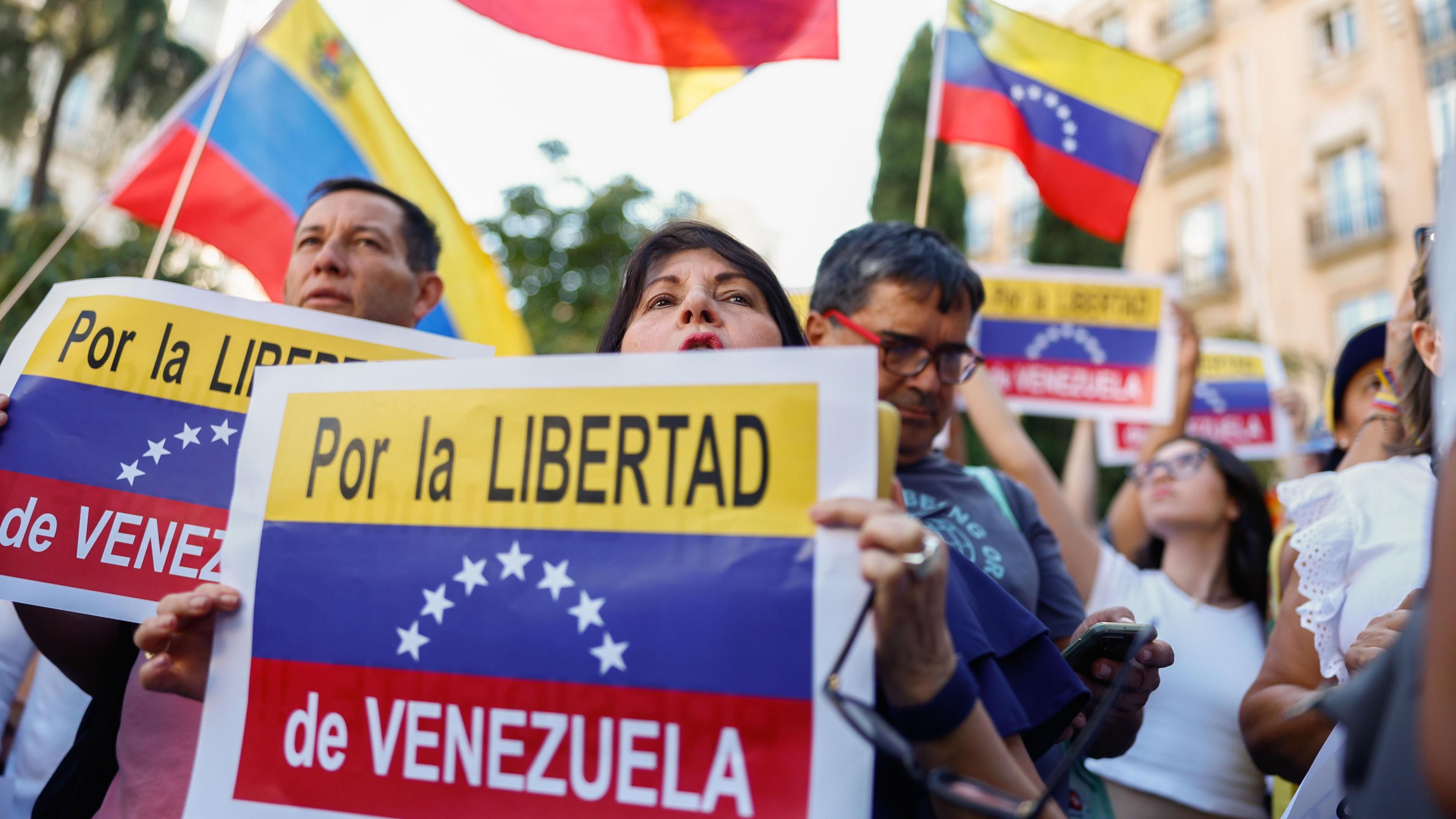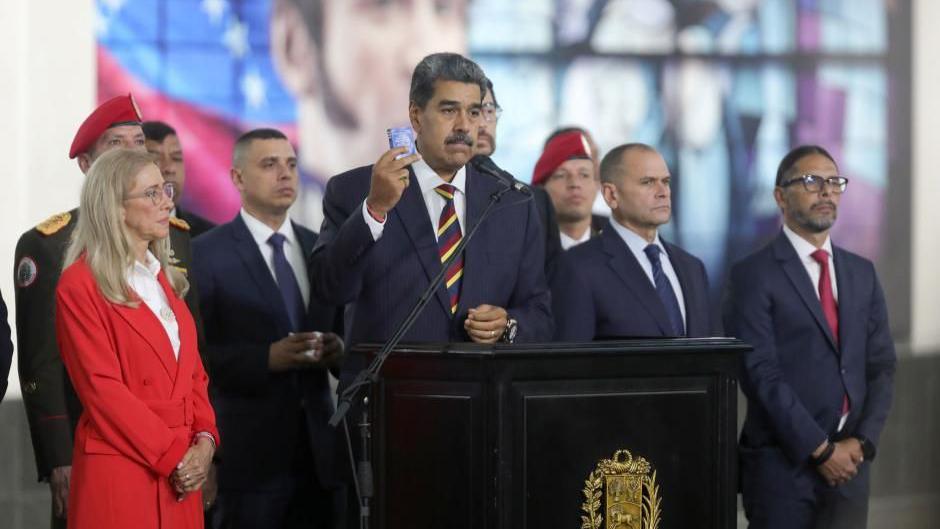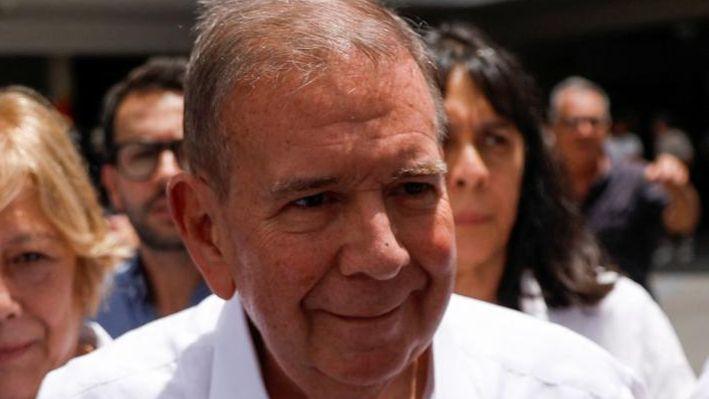UN orders Venezuela not to destroy election vote tallies

The opposition says the voting tallies prove its candidate won the election
- Published
The United Nations' Human Rights Committee has ordered Venezuela "to refrain from destroying" the voting tallies from July's presidential election.
The voting tallies - a detailed official breakdown of the votes from each polling station - have been at the centre of the dispute over who won the election.
The government-aligned National Electoral Council (CNE) declared the incumbent, President Nicolás Maduro, the winner but failed to provide the voting tallies to back up its claim.
The opposition, which with the help of accredited election witnesses collected and published more than 80% of the voting tallies, says these prove that its candidate, Edmundo González, was the overwhelming winner.
The Human Rights Committee - a UN body made up of 18 independent experts - said it was investigating allegations of electoral fraud following a complaint brought by a law firm on behalf of a Venezuelan voter.
As part of that investigation, the committee demanded that the Venezuelan state preserve the detailed voting data from the presidential election on 28 July.
There has been huge pressure on the CNE - which is stacked with government loyalists - to release the voting tallies.
But more than four months on from the election, it still has not done so, blaming an alleged computer hack on election night for its unprecedented failure to provide the data within 30 days of the election date.
In contrast, the opposition quickly uploaded the voting tallies it had gathered onto a website.
Independent observers and media, including the New York Times and CNN, say those tallies suggest that Edmundo González won the election with 67% of the votes compared to Maduro's 30%.
But Nicolás Maduro has dismissed the tallies published by the opposition as "fraudulent" and maintains that he is the election winner.
He is ploughing ahead with preparations for 10 January, when he says he will be sworn in to his third consecutive term in office.
This has pitted him against a growing number of countries, including the United States, Italy, Argentina, Costa Rica, Ecuador, Panama, Peru and Uruguay, which have recognised González as the president-elect of Venezuela.
IHR Legal, the international law firm which brought the complaint before the UN Human Rights Committee, said the case was "pioneering" and "historic" and could lead to the committee "confirming that Nicolás Maduro is not the president-elect of Venezuela".
Related topics
- Published13 September 2024

- Published12 September 2024

- Published9 September 2024
